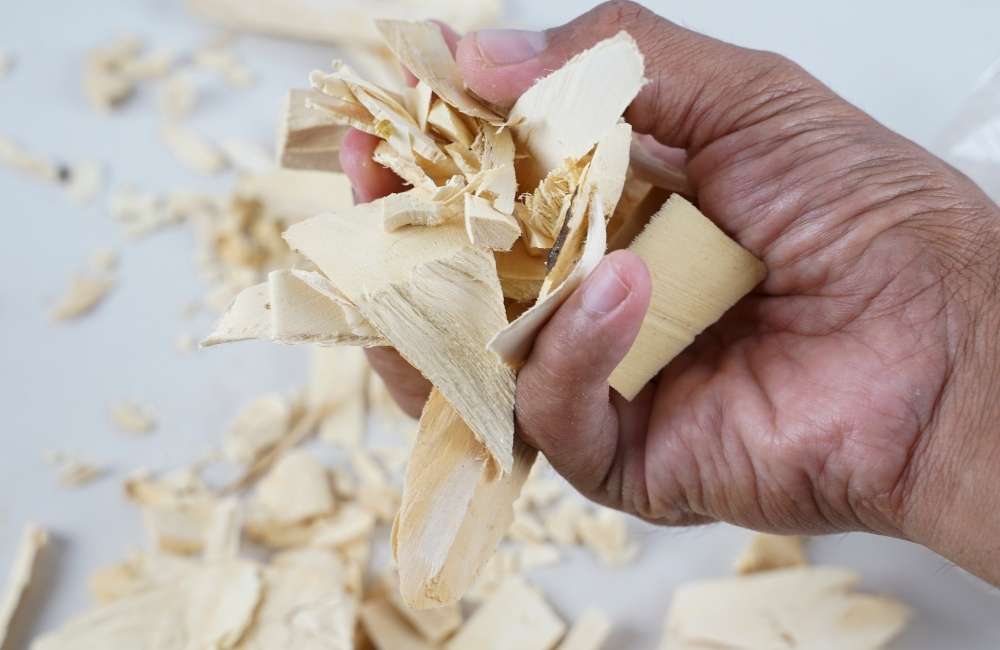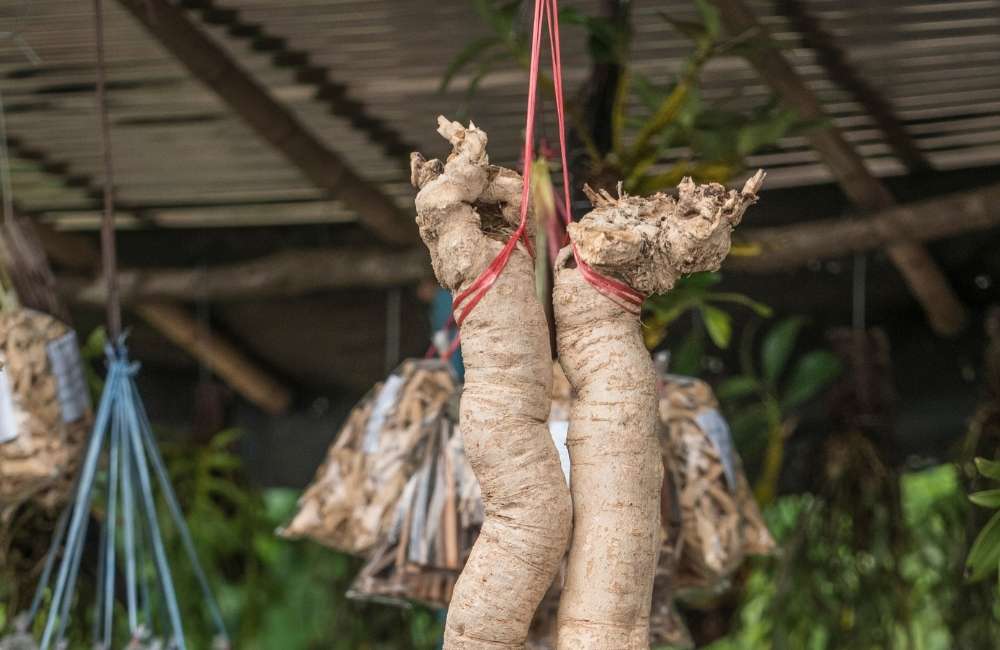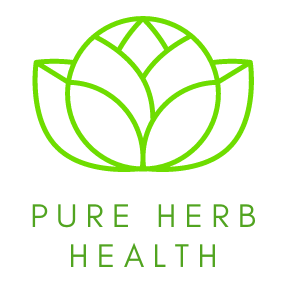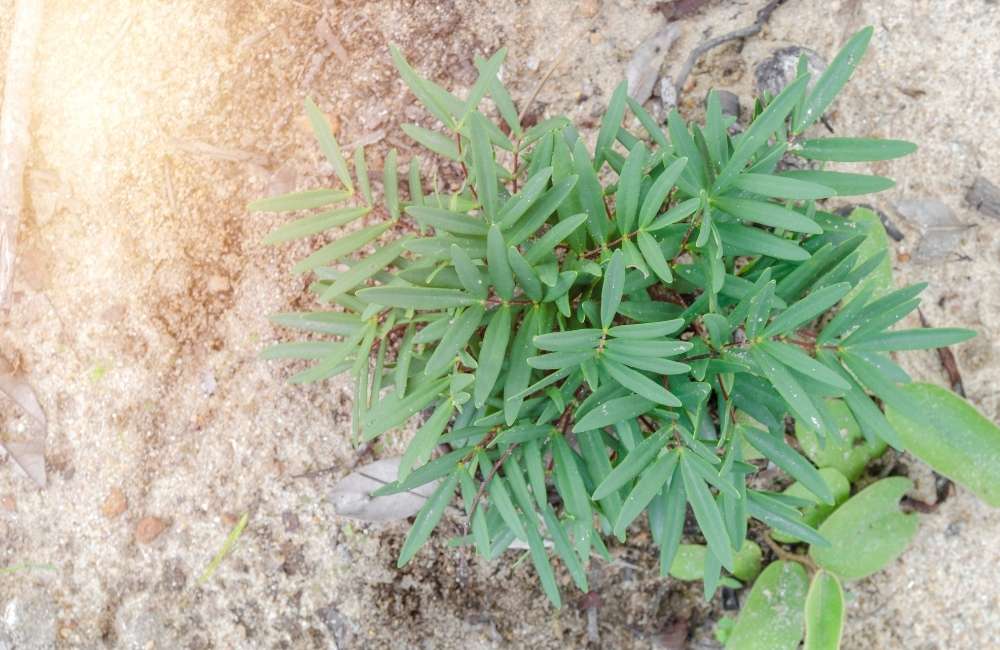Tongkat Ali (Eurycoma longifolia) is a medicinal flowering shrub native to Southeast Asia. It is indigenous to Malaysia, Indonesia, and Vietnam but some species of the plant also grow in regions of Cambodia, Myanmar, and Thailand.
This herb’s name means “Ali’s walking stick” which some people believe that it refers to its aphrodisiac effects while some say that it is due to the plant’s long, twisted roots that are used for its medicinal value.
It is also commonly referred to as Long Jack, Malaysian ginseng, and Ali’s umbrella. Other names refer to the plant’s medicinal use and extreme bitterness example is penawar pahit, which is the plant’s common Malay name, which translates simply as “bitter charm” or “bitter medicine”
Traditionally, the roots bark and fruits of the flowering plant have been used in the preparation of medicinal products but the root is used the most. Herbalists regard the plant as an adaptogen (a herb that helps the body adapt to different kinds of stress, including physical, chemical, and biological stress.)
The shrub can grow up to 10m (33 ft.) in height and it is often unbranched with reddish brown petioles. It has compound leaves that consist of 30-40 leaflets. The plant grows in the understory of lowland forests and survives on a variety of soils but prefers acidic, well-drained soil.
Chemical Constituents of Tongkat Ali
Tongkat Ali plant parts are rich in various bioactive compounds like (eurycomaoside, butyrolactone, eurycomalactone, eurycomanone and parvalbumin-B) among which the alkaloids and quassinoids form a major portion. Quassinoids are the major active compound in the root.
Health Benefits of Tongkat Ali
This has so many purported health benefits. In Indonesia, Malaysia and Vietnam, the Tongkat Ali plant has been used traditionally to take care of a lot of ailments. Even there is a traditional belief that it is an aphrodisiac (sex enhancement medication). Let us now look at its various benefits, both the benefits that it has been known for traditionally for a long time and has been researched into and the benefits that have not been researched into.

-
-
Male Fertility and Sexual Performance
-
In Indonesia and Malaysia, traditionally, the root of the plant is boiled in water, and the water is consumed as an aphrodisiac. Tongkat Ali has been referred to as Malaysia’s “home-grown Viagra” with the government investing considerable effort to license, develop, and sustain research into the potential health benefits. The root of the plant is highly bitter.
Some research has shown that it may enhance male fertility and sexual performance and some studies suggest that the beneficial effects may include:
- Increased semen volumes, sperm count, sperm viability, and sperm motility.
- Increased production of testosterone.
- Enhanced erectile function and sexual performance.
It was suggested that the aphrodisiac effect may be due to the elevation of testosterone levels in males and enhancement of dopamine in the brain.
-
Ergogenic Aid
Ergogenic aids are substances used by athletes to enhance athletic performance. Tongkat Ali may act as an ergogenic aid because it decreases stress and increases testosterone levels, according to research. It was also discovered in the research that there was enhanced muscle strength.
-
Stress Management
It was concluded in a study ( Journal of the International Society of Sports Nutrition) that this herb might be an effective remedy for modern-day chronic stress, sleep deprivation, and exercise training. This was done by assessing stress hormones in 63 people taking Tongkat Ali extract or a placebo for 4weeks.
There were significant improvements in anger, tension, and confusion in people taking the extract. Testosterone levels increased, and levels of the stress hormone cortisol decreased.
In combination with a multivitamin, the participants reported enhanced vigour and emotional well-being. Glucose concentrations also decreased which also contributed to the participants’ well-being.
-
Anti Cancer
Some compounds isolated from various parts of the plant showed promising anticancer properties through research but more research work has to be done in this regard.
-
Anti-Inflammatory and Antimicrobial Effect
It has been shown through research that it is effective against Escherichia coli and Salmonella typhi. It equally showed some anti-inflammatory properties.
Traditional Uses of Various Parts of Tongkat Ali
Tongkat Ali (Eurycoma longifolia Jack) is a popular traditional herbal medicine and has been long used in Indonesia, Malaysia, Vietnam etc in their folk medicines for aphrodisiac effects as well as malaria in Asia.

Let us now take a look at what has been done with various parts of this plant in traditional medicines:
- The Leaves: A decoction of the leaves is used for washing itches.
- The Fruits: This is used in curing dysentery
- The Bark: The bark is mostly used as a vermifuge (agent used to expel worms)
- The Tap Root: This is used to treat high blood pressure.
- The Root Bark: This is used for the treatment of diarrhoea and fever.
- The Root: Mostly the root extract is used as a folk medicine for sexual dysfunction, ageing, malaria, cancer, diabetes, anxiety, aches, constipation, exercise recovery, fever, increased energy, increased strength, leukaemia, osteoporosis, stress, syphilis and glandular swelling.
The roots are also used as an aphrodisiac, antibiotic, appetite stimulant and health supplement.
Risks and Side Effects of Tongkat Ali
This plant is safe as long as people do not take it in high doses. In doses higher than the recommended therapeutic doses, it may be toxic. It is advised that people with certain conditions should avoid Tongkat Ali supplements or discuss them with their doctors before using and they as listed:
- Persons with hormonal aggravated cancers should be cautious as it increases testosterone levels.
- Persons taking medications to lower their blood glucose should speak with their doctor before taking Tongkat Ali as it may increase the effects of these medications.
- Persons with weakened immune systems should also be cautious.
- Persons with cancer, heart disease, and kidney disease should avoid it.
- Children, pregnant and breastfeeding mothers should not take Tongkat Ali.
Adulteration and Contamination of Tongkat Ali
It is worthy to mention here that there have been several cases of products falsely claiming to contain Tongkat Ali as an ingredient, as well as product contamination cases. Some of the products were mixed with active ingredients of drugs for erectile dysfunction.
Some products in Malaysia were tested and it was found that they were contaminated with mercury beyond legally permitted limits. Care should be taken to purchase products from credible manufacturers and pharmacies.
How to Identify Genuine or Real Tongkat Ali
Genuine extract always has the following characteristics:
- It has a bitter lingering taste.
- The extract is water soluble and should dilute in water.
- The extract will absorb moisture from the air and become sticky.
Conservation and Sustainability Concerns
Tongkat Ali is mainly used for its roots, which necessitates uprooting the entire plant when it is harvested. This has led to concerns over the long-term sustainability of its use.
In Malaysia, the raw herb is banned from export, and the plant itself has been listed as one of the priority medicinal species for conservation, and the harvesting of wild trees is restricted according to Act 686 on International Trade in Endangered Species.
The Best Form of Tongkat Ali to Take
Judging against criteria such as potency, a wide range of proven benefits, a wide number of research publications and no reported death or minimal health risks, the yellow variant is deemed to be the most popular and the best out of the yellow, black or red variants.

Tongkat Ali Preparations (Commerically Prepared)
For already packaged extracts, buy from reliable manufacturers. Look for a 100:1-strength extract. This means that 100kg of the root was used to obtain 1kg of extract. Manufacturers of Tongkat Ali extract can use very different concentrations in their preparations of the supplement, ranging from 20:1 to 200:1. However, a ratio of 100:1 is considered standard.
- If you choose a stronger concentration, lower your dose accordingly. For example, if you have a 200:1 concentration, you take half of the recommended dose to achieve a 100:1 concentration.
- If you choose a lower concentration/dose, you can increase it to get the full effect of the supplement.
- Look for a supplement that was extracted with water rather than ethanol. You can find this on the drug literature or the manufacturer’s website.
- Make sure to taste the extract and ensure it tastes bitter. Tongkat Ali contains quassinoids which are among the bitterest compounds which are found in nature.
- Take no more than 200-300mg capsules per day. The supplements typically come in 100mg-200mg capsules. You can split it into two doses throughout the day.
- Take a glass of water to help swallow the capsule as it is bitter.
- Avoid taking it with juice as the acidity can affect absorption.
Boiling the Tongkat Ali Roots at Home
- Choose a mature plant that is flowering or bearing fruits especially if you live in Southeast Asia and you have to harvest your plant.
- Pull up the whole plant to access the root. Wash thoroughly.
- Dry your Tongkat Ali roots by placing them in a 100-120 *F(38-49*C) oven for 72hours or place them in a warm, dry place that can receive sunlight for at least 5-6hours a day for about 3-7days.
- You can slice your Tongkat Ali into thin slices and put them in a pot, pour about 2-3 cups of water and boil for about 20 minutes.
- You can drink it as soon as it is cooled.
- Traditionally, you can boil the same root up to 3 times to exhaust the constituent.
Conclusion
Tongkat Ali seems to be a promising remedy for several health issues but more research is needed in some of these areas. Some research suggests that it is beneficial for male fertility, sexual performance, and stress. It might also be an effective ergogenic aid.
Traditionally too, it has been used especially as an aphrodisiac. There is a need for more research work to be done but for now always consult with your doctor if you want to take Tongkat Ali.
This write-up is not intended for you to substitute your prescription products for Tongkat Ali but for enlightenment purposes. Thank you all!

